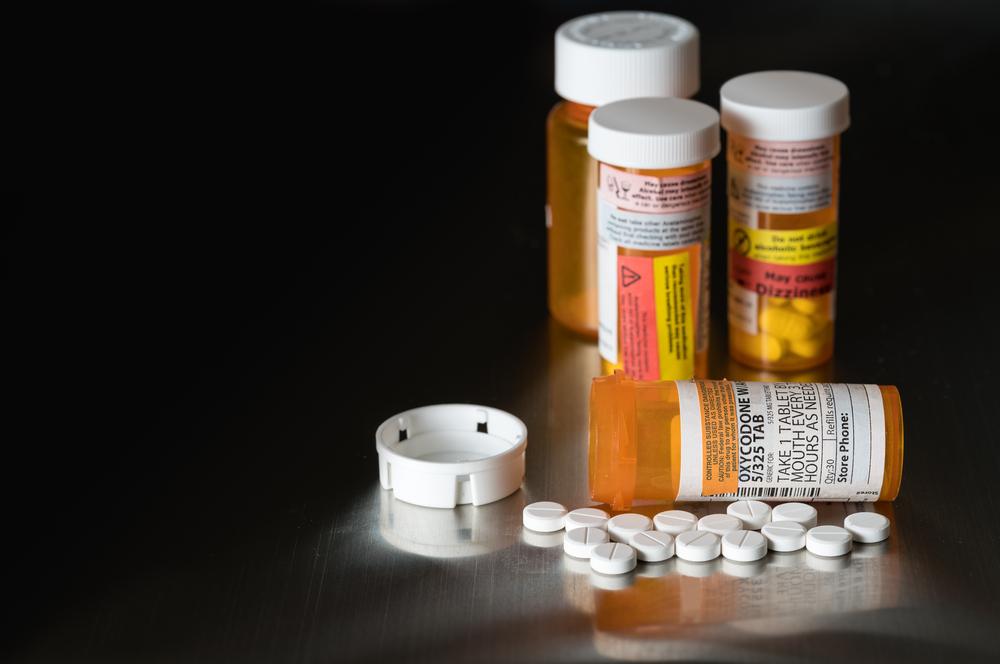
Ever since the 1990s, the U.S. has experienced a sharp increase in the rates of opiate abuse, addiction, and overdose. According to the most recent government data, more than 115 people overdose on opiates in the U.S. each day. Unfortunately, quitting opiates is often extremely difficult and can be dangerous without medical intervention due to withdrawal symptoms.
If you suspect that a loved one is struggling with opiate addiction, or if you yourself have fallen into a dangerous pattern of opiate abuse, it is important to seek medical intervention as soon as possible. By catching the signs early on, there is a better chance for recovery.
Physical Symptoms
Opiates bind to opiate receptors in the brain, spinal cord, and digestive system, changing the way the body functions. As people fall further and further into addiction, their bodies can be disrupted to the point of malfunction, which causes painful symptoms and even death.
When someone uses opiates, you can expect to see the following symptoms:
- Pinpoint pupils
- Shallow or slowed breathing
- Itching and flushing of the skin
- Odd sleeping and waking patterns, such as falling asleep sitting up or looking sedated at abnormal times of day
Over time, the person who is addicted will likely develop a variety of medical problems, such as:
- Pain intolerance and heightened sensitivity
- Constipation, intestinal ileus, and bowel perforation
- Suppressed immune system
- Organ damage, especially of the liver
- Difficulty breathing
- Overdose and death
It may be hard to see addiction in somebody based on physical symptoms alone, especially if they chalk them up to another illness. However, keep tabs on these and other warning signs, and don’t be afraid to trust your instincts.
Change in Personality or Interests
In the short-term, while the person is in an opiate-induced state, they may seem more elated or euphoric than usual. They may be hyperactive and indulge in risk-taking activities they would normally have shied away from prior to addiction.
away from prior to addiction.
In the long run, it is common for those who are addicted, to suffer from irritability and mood swings. Severe depression may also develop, and the person may lose interest in activities that previously excited them and experience a drop in motivation. This can be accompanied by a general sense of fogginess and confusion, and the person may struggle to remember things or make basic plans. Withdrawal and social isolation are also clear signs that something is wrong. For example, someone who was once a vivacious and regimented person may spend time alone, cut off contact with their friends and stop showing up to work.
Collapse of Relationships
It is quite common for relationships to fall apart when one of the members of the relationship is addicted to opiates. It doesn’t matter if the relationship is familial, platonic or romantic. As opiates slowly take control over somebody’s life, everything else becomes secondary to fueling the addiction, including their loved ones.
In some cases, the relationship may fall apart because the person is not themselves anymore as reclusiveness and irritability take over. In other cases, it may be a matter of money. Someone struggling with addiction may spend all their money on drugs, sell important items to afford their addiction or even steal money and belongings to sell for drug money. Finances are a major breaking point in many relationships.
Switching Doctors Frequently
Many people who become addicted to opiates do not use blatantly illegal substances like heroin and fentanyl. Instead, they obtain drugs through the “correct” channels. Many people struggling with addiction will do what’s called “doctor shopping,” where they hop from one doctor to another in order to amass opiate prescriptions. If the doctor they visit refuses to prescribe the medication, they will move on to somebody else.
We don’t know exactly how many people doctor shop, but it could be around 0.7 percent of all patients who have been prescribed opiates. A recent report from the U.S. Department of Health and Human Services indicates around 22,000 Medicare Part D beneficiaries may be doctor shopping to get excessive amounts of opiates.
Doctor shopping always involves deception, and the prescriber may or may not be aware that they are being duped. Someone who is addicted may:
- Lie about symptoms or conditions, such as lower back pain or chronic pain, to obtain a prescription
- Hurt themselves to create a legitimate reason for a prescription
- Omit medical information, such as previous opiate prescriptions, to keep the doctor in the dark
While some may assume doctor-shopping is a better alternative to buying opiates from a dealer, it is actually illegal under the Uniform Narcotic Drug Act of 1932 and the Uniform Controlled Substances Act of 1970. Some states have additional laws regarding doctor shopping. All states except Missouri have also instituted online prescription drug monitoring programs (PDMPs). Using PDMP databases, law enforcement agencies and doctors can screen patients who may be engaging in doctor shopping, and someone who is caught may face serious jail time or admittance into an addiction program.
Regain Control of Your Life With Recovia
No matter which variety of opiates you take, recovering from opiate abuse is a long and difficult journey. Here at Recovia, it’s our goal to help every patient escape drug addiction, manage chronic pain and withdrawal symptoms and develop confidence in their ability to excel in life drug-free.
Patients have the option to enroll in an outpatient program that ranges anywhere from four to six weeks. Depending on the program the patient chooses, they will work with our staff three, four or five hours a day for three to five days a week. Treatments include narcotic medication detox, Medication Assisted Treatment (MAT), physical therapy and rehabilitation, psychotherapy and counseling and much more. After completion of the program, we follow up with our Supportive Care program to make sure patients are adjusting well to their new life.
We provide treatment for the following addictions:

- Oxycodone
- Morphine
- Percocet
- Hydrocodone
- Fentanyl
- Codeine
- Heroin
- And others
If you are interested in joining one of our outpatient programs, contact us online or call us at (480) 712-4600 today.




